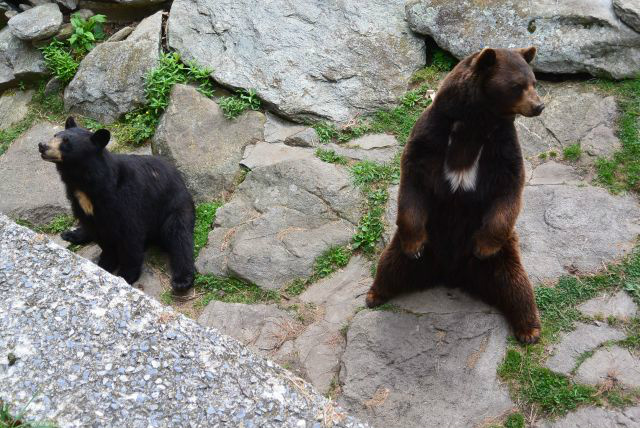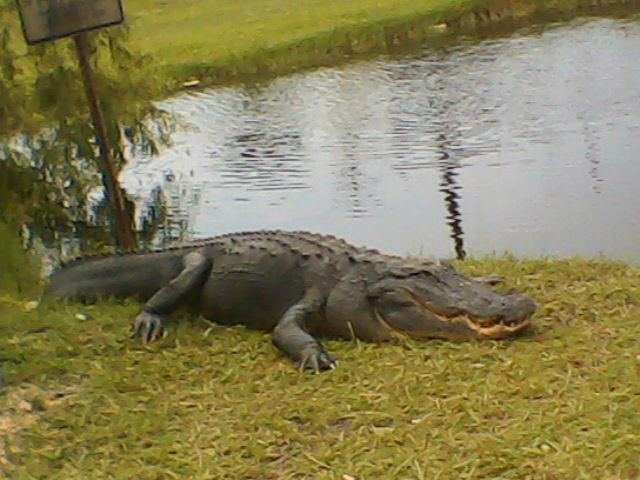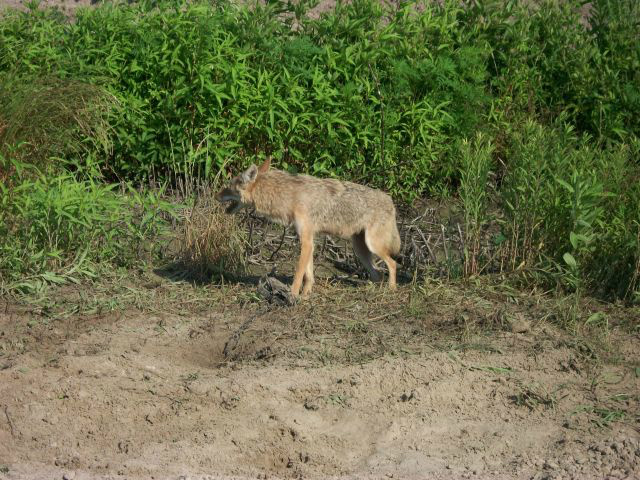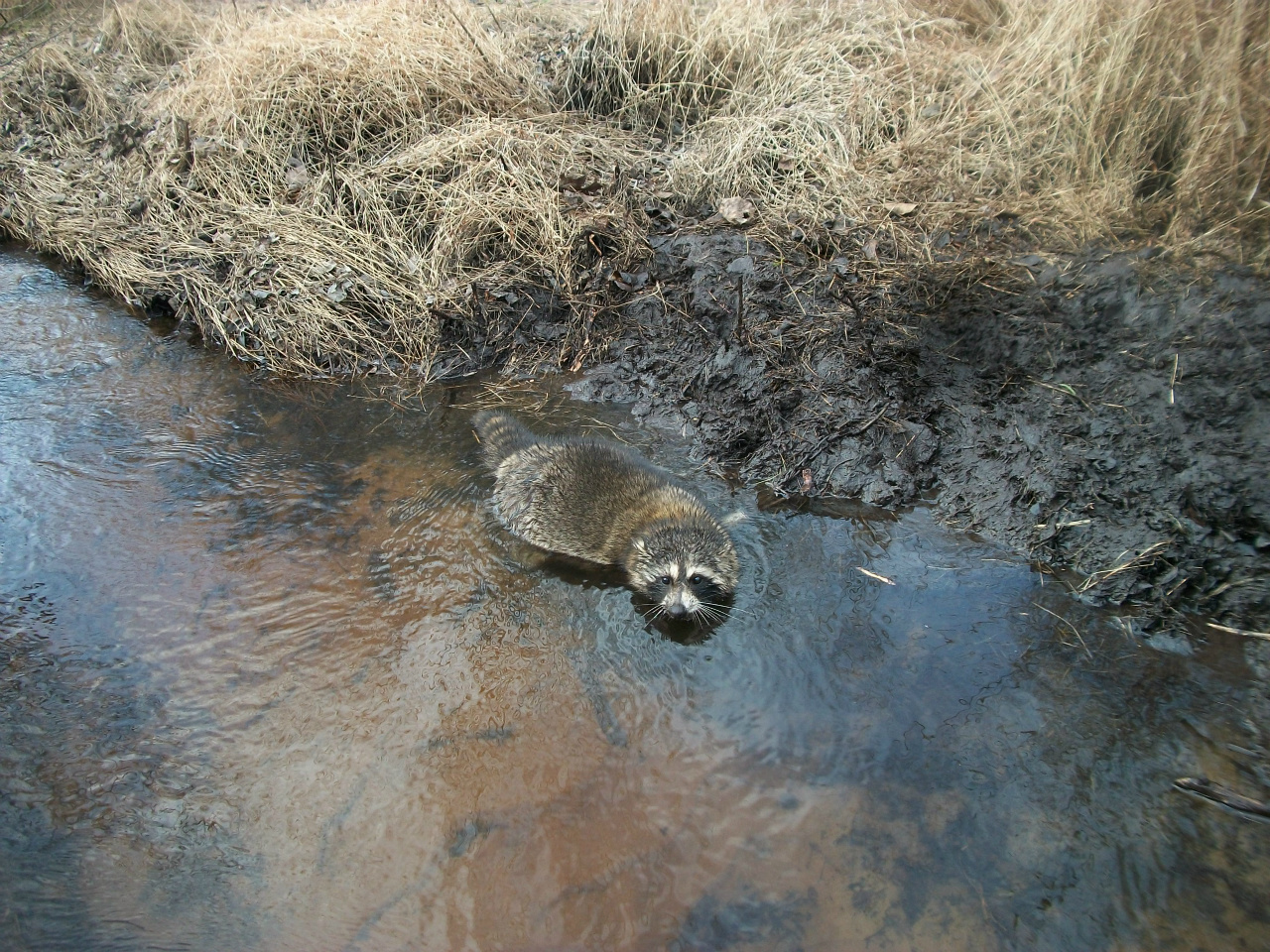If you check the statistics you’ll find that wild animal attacks on humans are rare. You are more likely to be attacked by your own dog than you are a wild animal. But even on those rare occasions there are still things you can do to avoid attack or defend yourself somewhat.
Remember that wild animals are more afraid of you than you are of them. In most cases they will simply run away from you. It’s in those very few other cases that their curiosity brings them closer. Remember these helpful hints and maybe you can avoid an ugly incident.
The most important rule is DO NOT RUN. Predators live for the chase and will pursue when a potential victim flees. This is why when we DO hear of an animal attack it’s almost always a jogger. And let’s face it, I don’t care how fast you ran the 100 yard dash in high school, you’re NOT going to out run hungry coyote or cougar. Even the bear, as big and bulky as it is, will overtake you in the first 50 yards. So unless you can escape to your vehicle, inside a building or up a good tree in the immediate vicinity, stand your ground.
If you find yourself in a predicament in the woods, stay calm. Slowly step back and remove yourself from the area. If you can’t, then stand straight and make yourself look as tall as possible. Animals are very keen on sizing up an adversary and will not start a fight that they think they can’t win. If further deterrents become necessary then make some noise. Shout, bang sticks together, wave your arms if necessary. Anything to make you seem larger and more formidable. Usually this is enough to turn most animals, even bear.
Bears
The one exception is Momma bear. If you encounter a bear in the woods, look for cubs nearby. If you see them then slowly back away and remove yourself from the area. If this is not possible, then stay calm and quiet and hopefully Momma will ignore you and walk away. Make no move towards them and no move that could be perceived as a threat. Momma don’t take kindly to those things.
Momma bear may lunge at you and then stop. This is a warning for you to come no closer. If she does this, thank her for the warning and back away slowly. She may make a false charge or two. This is the same warning. Back away slowly, leave the area. But if she charges and DOESN’T stop, if the standing tall and making noise doesn’t work and she keeps on coming, then the best advice I can give you is to drop into the fetal position to protect your head and vulnerable spots and play dead. Do not move. She may bat you around some and it’s gonna hurt, but she’ll get tired of it and leave you alone. Remain still until her and her cubs have moved on.
You’ll be bruised, bleeding, and sore but it’s much better than being eaten!
Alligator
The American Alligator is special treat for us here in North Carolina. They inhabit our coastal region from the South Carolina border all the way up to Virginia and inland as far as here in Wayne County and beyond. We are very lucky to have them here in our state. They give us the opportunity to see up close a real living fossil. But they are predators with little fear and great destructive power. Their jaws are strong enough to clamp down on and hold even a full grown deer and a whack from their tails could break a mans back bone.
When observing alligators, keep your distance. They can be surprisingly fast for short distances and can move very quickly. You may think you’re safe because you are several feet behind its tail then, suddenly, in a snap, it’s wheeled completely around and lunged at you clamping your foot in its jaws. A safe distance from a gator is no less than at least twice the length of its body. If the gator is 6 feet long, don’t come closer than 12 feet and then still be ready to jump back. And there will be lots of people who will tell us that this is still way to close. I may not necessarily disagree with them.
My advice for gators is simple. Leave them be. Don’t mess with him and he’ll not mess with you.
Canines and Cats
If after standing your ground and making noise, a coyote should still not be deterred, then lunge at him. This normally scares them into retreat. Same goes with a bad dog. I have turned bad dog attacks by charging directly toward them. They don’t expect this and it shakes their confidence. This should also work for cat attacks. Cats are cautious and timid creatures and can be intimidated easily. Even the cougar could be turned by its intended prey if that prey turned and charged him.
With the canines, like the coyote, if it attacks you then fight back. You are bigger than he is and it’s now up to you to prove it to him. With your fist, a stick or any weapon you have, smack him as hard as you can across the nose. This is one of their most sensitive areas and a good blow across the bridge of the nose will get his attention.
Raccoon
Raccoons? Leave them pesky little varmints alone to start with. They are curious creatures and at times will let their curiosity override their fear. Yell at him. This is normally enough to change his mind and send him on his way. Don’t be mistaken by how cute and cuddly they may appear. Raccoons can be quite vicious and with their dexterous fingers, long claws and sharp teeth can cause a lot of damage. Keep your distance from these bandits.
Camping and Hiking
While in the wilderness, and by that I could be referring to some folk’s back yards, keep these hints in mind and you could avoid conflict to begin with. Keep food stuffs in sealed containers. Animals are drawn to the smell of food. By the same token, keep trash bagged up, hang it well off the ground if possible and well away from campsite until time to haul it out and haul it out as often as possible. Even your human waste, needs to be bagged and removed.
Jogging? Don't jog in the wilderness. A city sidwalk, your own neighborhood or a city park is a much safer place to jog. Jog where the largest critter you may encounter is a squirrel.
When you run predators consider you prey.
Review
Now let’s review;
Do not feed wild animals. This makes them bolder and more likely to react when the food runs out.
Do not approach wild animals. They may take your presents as a threat and react defensively.
Do not run. Many animals are born for the chase and will pursue if you run.
Do not leave food stuffs out. This will attract animals.
Do not be intimidated. Stand your ground and make noise to fend off most attacks.
If all else fails, play dead. Playing dead is much better than BEING dead.
Now…. With all that said I must throw in the “disclaimer”. I am not a wildlife biologist, I am not a professor of zoology nor am I a scout for National Geographic. I am only a simple hunter, trapper and certified Wildlife Damage Control agent. I can make you no promises nor give you any guarantees. I can only share with you what I’ve learned from my years of experience dealing with wildlife and tell you what’s worked for me.
Hmmm… Maybe that last paragraph should have been in fine print.




Latest comments
There is none. All that's mentioned is "native" wildlife and there are tons or restrictions there.I think there needs to be more restrictions on exotic pets just makes good sense.http://onedaytop.com/
Howdy, Mike! Welcome to my web site!
I've checked the regulations for some mention of exotics. There is none. All that's mentioned is "native" wildlife and there are tons or restrictions there.
I think there needs to be more restrictions on exotic pets just makes good sense. If allowed only qualified people with proper facilities shold be able too .But dont understand why I cant gig frogs!